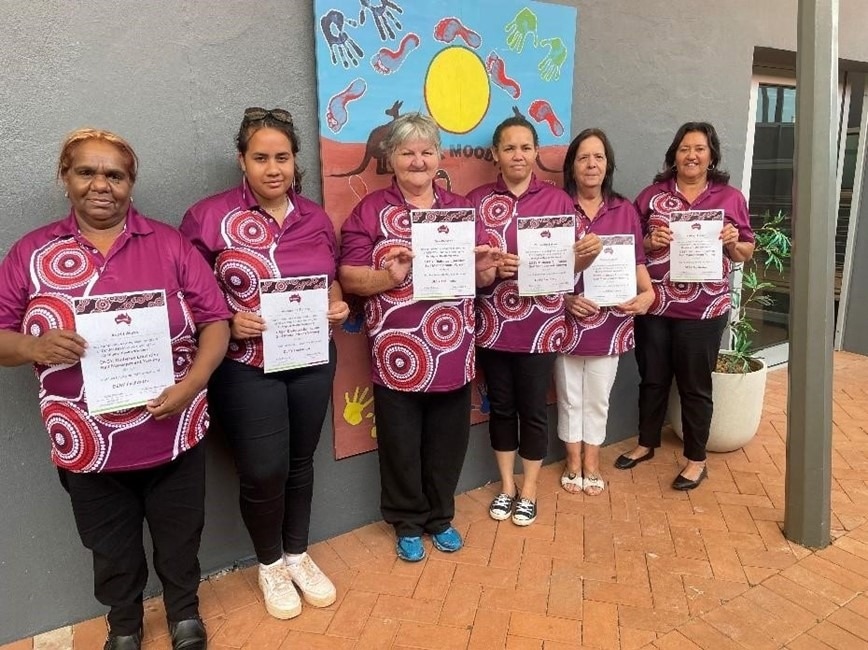On National Close the Gap Day (Thursday 16 March), Diabetes WA is calling for greater recognition of the disproportionate impact of diabetes on Aboriginal Communities in Western Australia. Aboriginal West Australians are at far greater risk of diabetes and diabetes-related complications than any other community in the State.

Image Credit: Diabetes WA
Aboriginal West Australians are nearly 40 times more likely to have major lower limb amputation.
Aboriginal people living in remote areas have 20 times the incidence of end-stage renal disease compared with the national average.
56% of Aboriginal people who reported having heart disease in 2019 also reported having diabetes.
Cataract and diabetic retinopathy continues to be the leading causes of vision loss in Aboriginal people in WA.
The diabetes gap is also generational. Type 2 diabetes in children, once vanishingly rare, is on the rise. Last year the number of children with type 2 diabetes in WA doubled and 60% of those children are Aboriginal. Many youth remain undiagnosed until damage has already been done and tend to have poorer outcomes than those diagnosed later in life.
Gestational diabetes is the fastest growing type of diabetes in WA, with many women remaining undiagnosed while diabetes silently impacts their unborn baby. Gestational diabetes is also more common in Aboriginal Communities.
This gap continues to widen with age. In some remote communities, 60–70% of people over the age of 65 have type 2 diabetes. Too many older Aboriginal people are living with preventable disabilities as a result of diabetes and its silent damage.
Diabetes WA CEO Melanie Gates says that training Aboriginal Health Professionals to work in their own Communities is an essential part of closing the diabetes gap.
“Diabetes is silently impacting generations of Aboriginal families by damaging hearts, kidneys, eyes and feet,” Ms Gates says.
Aboriginal Communities have told us that to close the gap that they want more Aboriginal Health Professionals involved in diabetes education.”
Melanie Gates, CEO, Diabetes WA
Diabetes WA has an established, culturally safe Diabetes education program called DESY (Diabetes Education Self Yarning). Consultation with Aboriginal Communities has highlighted the importance of this DESY program being delivered by people who belong to the communities they are working with. To that end, Diabetes WA has been running an Aboriginal Health Workforce Development pilot scheme, which has already trained 20 Aboriginal Health Professionals to deliver diabetes education sessions.
Project Lead for Diabetes WA, Natalie Jetta, is an experienced Aboriginal Health Professional. She says training Aboriginal Health Professionals will make diabetes education more accessible and more culturally safe for Aboriginal West Australians.
“We know that Aboriginal Health Professionals are best placed to talk to people within their own Community, because they already have the respect, trust, knowledge and connection they need to nurture their clients,” Natalie says.
“We have now trained 20 Aboriginal Health Professionals employed by the Aboriginal Community Controlled Health sector to deliver the DESY program.
“This will improve the cultural security of this diabetes education program and enable it to be delivered on Country across WA.”
Diabetes WA is committed to mentoring the newly trained Aboriginal Health Professionals and hopes to secure funding to expand the program to meet demand and help close the diabetes gap.